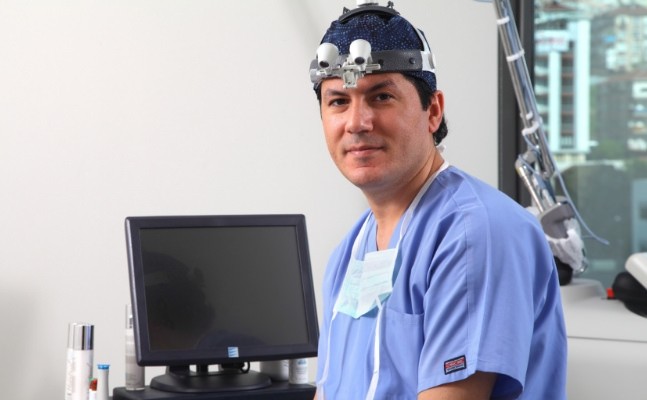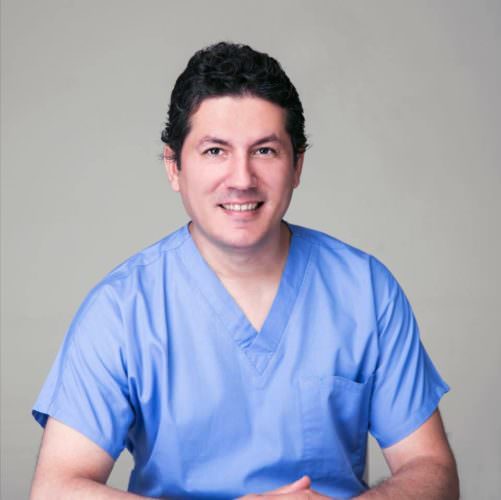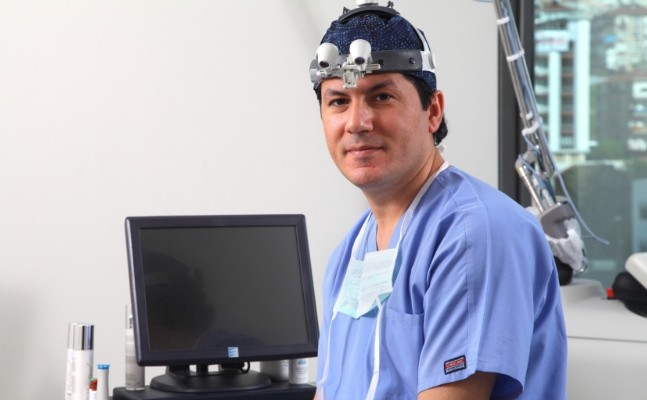Just a few days before summer begins Aesthetic, Plastic and Reconstructive Surgery Specialist Op. Dr. Zechariah Servant We asked about aesthetics and got advice for ‘High Heels’ readers. We wish you pleasant reading.

First of all, let’s get to know you… Who is Zekeriya Kul?
I am a plastic surgeon. After graduating from Istanbul University Cerrahpaşa Faculty of Medicine in 1999, I started my Plastic Surgery specialization at Vakıf Gureba Training and Research Hospital. After my specialist training, I completed my compulsive service at Van State Hospital and Bakırköy Dr. I performed it at Sadi Konuk Training and Research Hospital. I have been serving my patients in my own clinic in Istanbul since 2007.
What are the general aesthetic concerns of women in Turkey?
Aesthetic surgery is a field shaped according to society’s expectations. At the same time, aesthetic concerns are closely related to the structure of society. Unfortunately, we see that many of our patients resort to plastic surgery due to lack of self-confidence or pressure from the environment. We may have a child patient whose physical defect is ridiculed at school, or a female patient who is found odd by her husband due to a deformity in her body, and whose family relationships are negatively affected. Perhaps the best part of what we do is creating positive changes in our patients’ lives along with the self-confidence we give them. Regardless of the aesthetic concerns, if there is no serious underlying psychological problem, the plastic surgeries we perform are sufficient to relieve our patients’ concerns.
Are there any patients who are unhappy or regretful as a result of the operations?
There are two important factors that determine happiness or unhappiness after the operation. The first of these is the patient’s expectations and the other is surgical success. Although it is very successful, it may result in a surgery that does not result in happiness because the patient’s expectations are unrealistic, or the result of the surgery may bring unhappiness with it due to an unexpected complication. Therefore, in order for a plastic surgery to result in happiness, the surgeon must understand the patient’s expectations well, correct the expectations of those who do not have realistic expectations, or do not perform this surgery. For example, I have never seen any of my patients who had breast enlargement surgery unhappy, but a rhinoplasty patient, for whom we told her that her expectations were for naturalness before the surgery and to whom we made plans accordingly, was very successful as a result of the surgery, but after the surgery she said, “My nose is more upturned, even if you look at it, you can tell that it has been plastic surgery.” I witnessed it coming again. That’s why planning, talking, and fully understanding expectations in the preoperative period are of great importance.
For which aesthetic operation do they apply to you the most?
According to ISAPS (International Society of Aesthetic Plastic Surgery) data, the most preferred plastic surgery this year is; She had augmentation breast surgery. The most important factor in this is that patient satisfaction is very high. Of course, rhinoplasty continues to remain a trend in our country. Recently, we see that the demand for facial rejuvenation surgeries is increasing. We can say that the reason for this is that tried and tested non-surgical methods have lost their popularity because they are not effective and there is a return to surgery.
What is men’s interest in plastic surgery? Do you have male patients?
In recent years, we see that men also have high demand for plastic surgery. Again, while there is a high demand for rhinoplasty, we see that there is also a great interest in gynecomastia (big breast appearance in men) and liposuction and body shaping surgeries by men.

The demands and complaints of young people and middle-aged people are different. Can you talk a little about these?
In our country, demands for plastic surgery vary among women according to their age group. While rhinoplasty and breast enlargement surgery are at the forefront in young people, we see that body shaping surgeries such as liposuction and abdominoplasty are performed more frequently in older ages. Sagging in the abdominal area after birth, large breasts that become physical problems as we get older, or sagging in the face and neck area cause us to perform surgical procedures on these areas in older ages.
Is there anything you object to in aesthetic interventions?
As a plastic surgeon, the issue I have focused on most for years is to perform plastic surgeries within an anatomical approach. This, of course, depends on the experience of the surgeon. In surgeries performed with an anatomical approach, natural structures are preserved to the maximum extent and complications related to the surgery are reduced to a minimum. At the same time, performing surgeries within certain limits in accordance with the definition of ideal anatomy not only results in more natural results but also ensures a safer post-operative process. It is necessary to know the limits in aesthetic surgeries, make requests accordingly and apply surgical techniques accordingly. Therefore, both the surgeon and the patient have a great responsibility here.
Is there any advice you would like to give to High Heels readers?
My advice to my patients and to all readers here is, if you want to achieve happiness from plastic surgery, express your wishes in the most realistic way, be sure to ask your questions to your plastic surgeon, have more than one pre-operative meeting When necessary, and clear up all the question marks in your mind about the pros and cons of the surgery.
Aesthetic, Plastic and Reconstructive Surgery Specialist Op. Dr. To Zekeriya ServantThank you for the useful information you provided.

